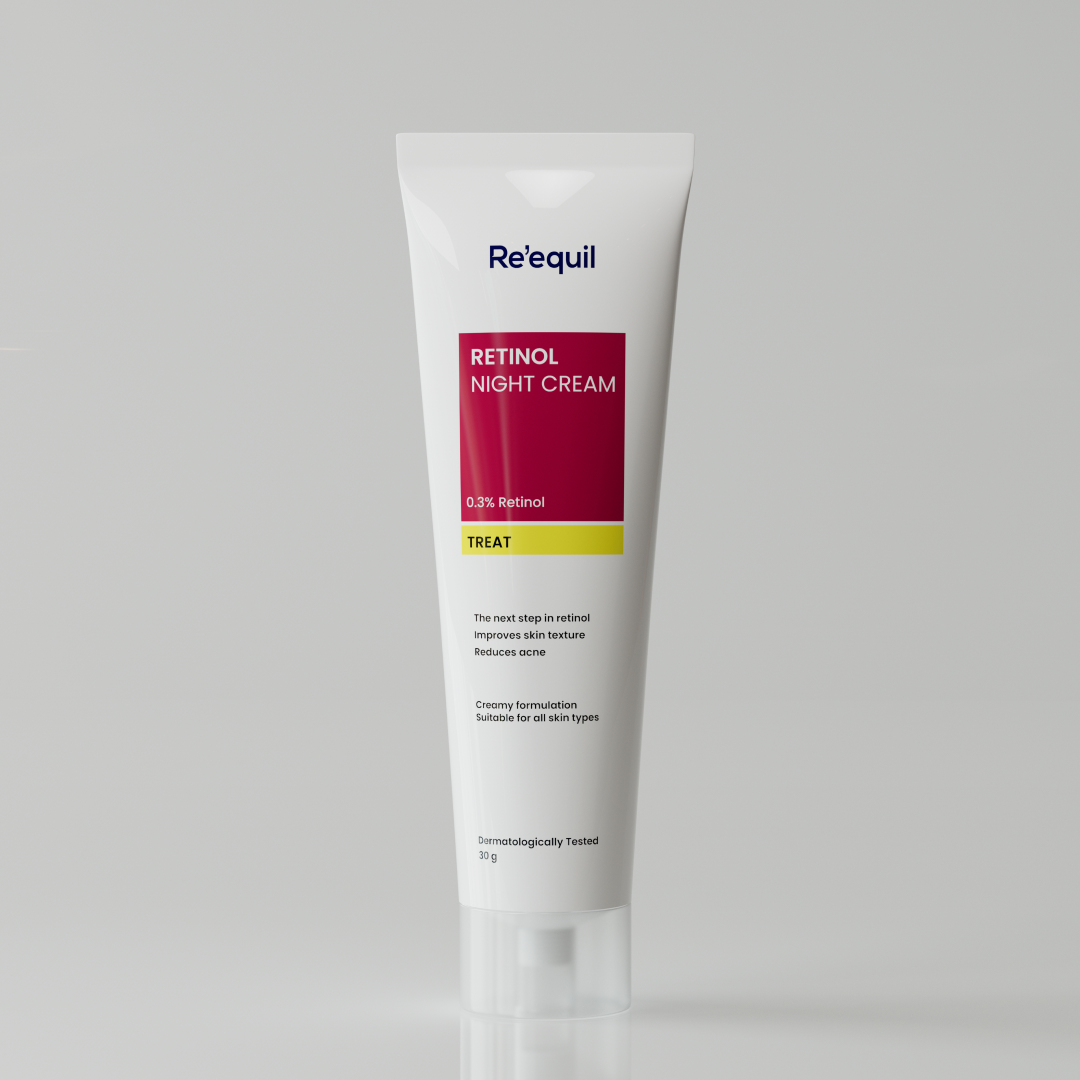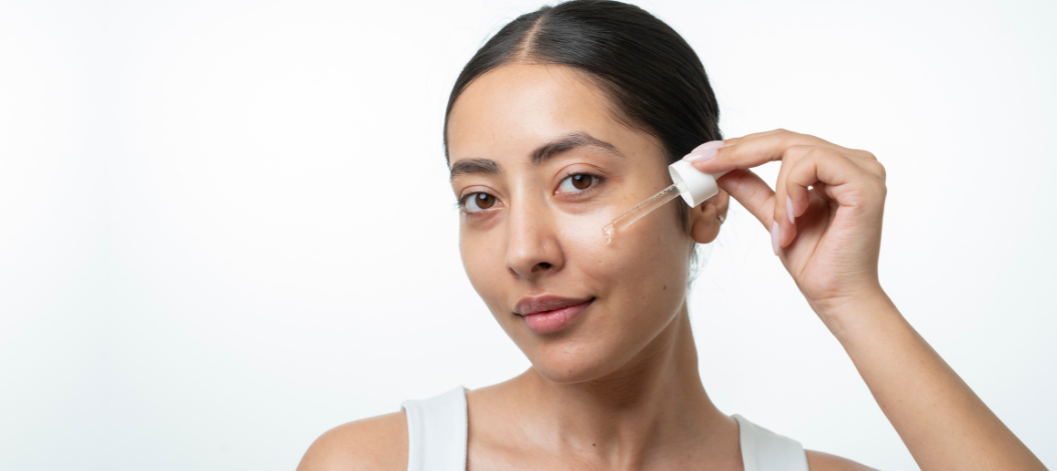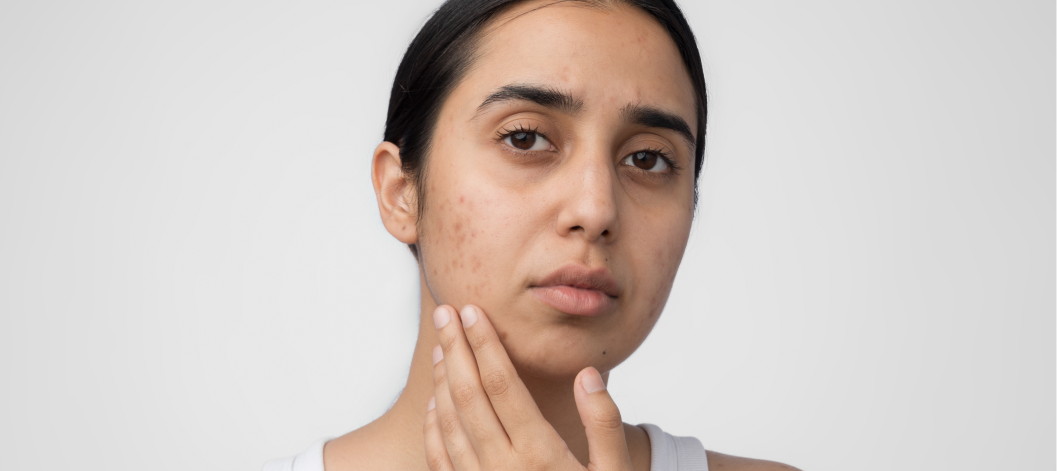
Does Coffee Trigger Acne?
Ask a coffee buff to start their day without a cup of coffee—the look on their face will say it all.
That first sip in the morning—a sense of awakening—makes one feel primed and prepared for the day.
Not only an inspirational morning reinvigoration—coffee is a lifestyle beverage with a global consumption of 400 billion cups a year.
It has annexed cultural and socioeconomic prominence since the earliest accounts of human history.
Filtered coffee is one of the safest beverages available out there.
Drinking 2-3 cups of coffee a day will benefit your health more than harm.
However, many are worried about whether coffee causes acne—the reality is—the relationship between the two is quite complex.
Let’s discuss whether coffee is actually the cause of your acne—and how you can drink it without exacerbating your acne situation.
Does drinking coffee cause acne?
There are no studies that directly link coffee to acne.
However, caffeine triggers stress responses in the body. It increases the body’s levels of cortisol, the “stress hormone” which can lead to lack of sleep and other health issues.
A 2017 study concluded that stress positively correlates with acne severity.
Caffeine can exacerbate the existing acne—if not the root cause of new breakouts.
Moreover, how you drink your coffee also plays a crucial role—and an important factor to consider before you conclude the link between caffeine and acne.
Tips to enjoy coffee without worrying about acne
Coffee doesn’t directly cause acne—it’s all about how you drink it—and if you can change that—you don’t have to avoid coffee at all.
Here are some ways you should be drinking coffee if you want to make sure it doesn’t worsen your acne or cause new breakouts.
Avoid refined sugar and milk
Coffee beverages generally include milk and sugar—which can contribute to acne.
Dairy products including milk can trigger acne and worsen the situation of existing acne, according to a 2018 study.
Excess sugar, on the other hand, can cause glycation (A natural process that is triggered by sugar).
Glycation can affect collagen and elastin—two proteins responsible for keeping our skin plump.
Glycation can weaken these proteins—resulting in wrinkles and a dull appearance.
That is why, black coffee (without sugar) is considered to be the safest.
According to a 2018 study, individuals who drank black coffee had lower acne severity than individuals who drank coffee beverages (mixtures).
Alternative
You can also switch to stevia—a sugar substitute made from the leaves of the Stevia rebaudiana plant.
Avoid coffee in the evening
Coffee has a half-life of 5-6 hours—so if you have it in the evening—it will probably be in your system till the time you go to sleep.
Thus, drinking coffee in the evening can reduce sleep quality and you might have a hard time sleeping.
Moreover, it can increase stress hormones which can lead to acne or increase the severity of existing breakouts.
References
1. Juhl CR, Bergholdt HKM, Miller IM, Jemec GBE, Kanters JK, Ellervik C. Dairy Intake and Acne Vulgaris: A Systematic Review and Meta-Analysis of 78,529 Children, Adolescents, and Young Adults. Nutrients. 2018 Aug 9;10(8):1049. doi: 10.3390/nu10081049. PMID: 30096883; PMCID: PMC6115795.
2. Zari S, Alrahmani D. The association between stress and acne among female medical students in Jeddah, Saudi Arabia. Clin Cosmet Investig Dermatol. 2017 Dec 5;10:503-506. doi: 10.2147/CCID.S148499. PMID: 29255370; PMCID: PMC5722010.
3. Poole R, Kennedy OJ, Roderick P, Fallowfield JA, Hayes PC, Parkes J. Coffee consumption and health: umbrella review of meta-analyses of multiple health outcomes. BMJ. 2017 Nov 22;359:j5024. doi: 10.1136/bmj.j5024. Erratum in: BMJ. 2018 Jan 12;360:k194. doi: 10.1136/bmj.k194. PMID: 29167102; PMCID: PMC5696634.
4. Natasha T, Wijaya L, Djuartina T, Arieselia Z. Effects of Coffee Consumption on Acne Vulgaris Severity in Atma Jaya Medical Students in Jakarta, Indonesia. j. urban health res. [Internet]. 2024 Oct. 9 [cited 2024 Dec. 1];3(1):1-12. Available from: https://ejournal.atmajaya.ac.id/index.php/juhr/article/view/5467
More articles to feed your curiosity...
Is Vitamin C good for sensitive, acne-prone skin?
Vitamin C is celebrated for its brightening, anti-ageing and protective benefits, making it a favourite in skincare routines. But for those with sensitive skin, it can feel intimidating due to its reputation for an occasional skin irritant. Does this powerful ingredient suit sensitive skin types? The good news is, with the right approach and product choice, Vitamin C can work wonders even for sensitive skin. Let’s explore how to make it a safe and effective part of your routine. Is Vitamin C suitable for sensitive skin? Yes, sensitive skin can use Vitamin C effectively with proper precautions and a thoughtful approach. Pure Vitamin C (L-ascorbic acid) is highly effective due to its potency. However, its acidic nature can cause redness, dryness or stinging for sensitive skin types. To make Vitamin C work for sensitive skin: Start slow Begin with a lower concentration (5%-10%). By beginning with a lower concentration, your skin gets time to adapt to the ingredient gradually, minimizing the risk of adverse reactions. Choose gentle formulations Opt for derivatives like magnesium ascorbyl phosphate, Retinyl Ascorbate or sodium ascorbyl phosphate. These derivatives still offer the same brightening and antioxidant benefits but with a lower risk of irritation, making them ideal for individuals with sensitive skin. Patch test Always begin the application with a small area first to check for reactions. This simple step ensures that your skin can tolerate the product without causing redness, stinging, or other adverse reactions, allowing you to safely incorporate it into your skincare routine. Pair with soothing ingredients Look for products with Hyaluronic Acid or Ceramides to counteract any dryness or tightness. They help to strengthen the skin’s natural barrier, preventing moisture loss and potential irritation. How does Vitamin C benefit sensitive skin? Vitamin C is a potent antioxidant. It neutralizes free radicals caused by sun exposure, pollution, and stress. This protects skin cells and prevents early signs of aging. Here’s what Vitamin C can do for the skin: Brightens skin Vitamin C is well-known for its ability to fade dark spots, hyperpigmentation and post-inflammatory marks. It brightens dull skin, giving you a more even and radiant complexion over time. Stimulate collagen As we age, collagen production naturally declines, leading to sagging and fine lines. Vitamin C supports your skin’s ability to produce collagen, improving elasticity and reducing the appearance of wrinkles. Protects skin from environmental stressors As a protective shield, Vitamin C guards your skin against environmental stressors like UV rays and pollution. While it doesn’t replace sunscreen, it enhances your skin’s resilience to external damage. The best way to use Vitamin C if you have sensitive skin When it comes to sensitive skin, introducing Vitamin C into your skincare routine requires a gentle approach. To get the most out of this powerful ingredient without causing irritation, it is essential to use it the right way. Here are some best practices to help you incorporate Vitamin C into your routine effectively and safely. Cleanse and prep Start with a mild cleanser enriched with glycerine, or ceramides to maintain the skin’s natural barrier and to avoid over-stripping your skin. Apply in the morning Vitamin C works well during the day to protect against UV damage, but always pair it with a broad-spectrum sunscreen that protects against both UVA and UVB rays. Don’t overdo it Using Vitamin C 2-3 times a week gives your skin time to adjust to the active ingredient, reducing the risk of irritation. Starting slowly allows your skin to build tolerance, ensuring you get the full benefits without overwhelming or damaging the skin’s natural barrier. Hydrate After applying Vitamin C, follow with a soothing moisturiser containing ingredients like Ceramides or Niacinamide to lock in hydration. This helps prevent dryness and irritation, ensuring the skin stays balanced and comfortable while maximizing Vitamin C’s benefits. READ - The most effective way to add Vitamin C serum to your skincare routine Does Vitamin C increase skin sensitivity? A common concern when using Vitamin C is whether it can make the skin more sensitive. While Vitamin C offers powerful benefits like brightening and protecting against environmental damage, its acid component can sometimes cause irritation for sensitive skin. To avoid sensitivity ensure your skin stays balanced while using Vitamin C, it is important to follow a few key practices. Limit your skincare routine to one active ingredient at a time. Avoid high concentrations of Vitamin C formulations. Keep your skin hydrated to strengthen its barrier. Use a non-comodogenic broad spectrum sunscreen on a daily basis. If Vitamin C feels too harsh, there are other options available. These alternatives can deliver similar benefits without causing irritation: Niacinamide (Vitamin B3): It helps brighten skin, reduces redness, and strengthens the barrier. Try incorporating it with a serum with 5%-10% niacinamide. Azelaic Acid: This helps fade pigmentation, calms inflammation and fights acne. You may include this in your skincare in the form of cream or gel with 10%-15% concentration. Licorice Root Extract: It helps reduce dark spots and soothes irritated skin. Look for serums or creams with licorice root as the main ingredient. Green Tea Extract: It is beneficial for skin firmness as it helps neutralize free radicals and reduces redness. Use toners or serums enriched with green tea. These alternatives provide effective results without compromising skin health. Common myths about Vitamin C and sensitive skin There are several misconceptions surrounding the use of Vitamin C, especially for sensitive skin. Understanding these myths and the facts behind them can help you make more informed decisions about incorporating this powerful ingredient into your routine. Let’s debunk some of the most common myths about Vitamin C and sensitive skin: Myth 1: Sensitive skin can’t use Vitamin C Sensitive skin can benefit from Vitamin C, if used correctly. The key is to start with a low concentration and use the right formulations. Myth 2: Vitamin C Works Instantly Vitamin C takes time. You’ll see visible results in 4-6 weeks with consistent use. Myth 3: All Vitamin C products are the same Not all Vitamin C is created equal. L-ascorbic acid is the purest form but can irritate. Derivatives like magnesium ascorbyl phosphate are gentler options. Signs of irritation from Vitamin C Recognizing the early signs of irritation can help you adjust your routine before the reaction worsens. Here’s what to watch for when using Vitamin C to ensure it’s working for you and not against you. Redness: Persistent redness or flushing after application. Tingling or Stinging: A burning sensation that doesn’t subside. Dryness or Peeling: Flaky skin in areas where the product was applied. If you notice these signs, discontinue use and switch to a milder alternative. Takeaway Vitamin C can be a game-changer for your skincare routine. The secret is selecting the right product, starting with a lower concentration, and incorporating it gradually into your routine. If Vitamin C doesn’t work for you, don’t worry—alternatives like Niacinamide and Azelaic Acid offer similar brightening and soothing benefits with less risk of irritation. Your sensitive skin deserves the best care, and with the right approach, you can enjoy radiant, healthy skin without any discomfort.
Should You Use Hyaluronic Acid If You Have Oily or Acne-Prone Skin?
Hyaluronic Acid: What is it and how it helps the skin When it comes to hydrating the skin—there really isn’t any skincare ingredient that can do a better job than Hyaluronic Acid. It is one of the most well-known skincare ingredients in the market today—and for all the good reasons. It is typically found in skincare formulations targeting skin concerns like dryness and facial ageing. There are 4 forms of Hyaluronic Acid available in cosmetic formulations Raw form. Has a higher molecular weight, and mostly stays on the top layer of the skin. Hydrolyzed form. Split into smaller fragments, has a lower molecular weight. Alkaline form, also called Sodium Hyaluronate. This one is the most effective form of Hyaluronic Acid. It has a lower molecular weight and penetrates deeper layers of the skin. Plus, it promotes the production of naturally occurring HA. Cross-linked form. Low molecular weight hyaluronic acid (HA) molecules are cross-linked to create a larger, more stable molecule. READ - A complete guide on Hyaluronic Acid Why you might need Hyaluronic Acid Hyaluronic Acid, also known as Hyaluronan, is already present in our body—it is mainly found in our connective, epithelial and neural tissues. According to a study, an individual weighing 70 kg has approximately 15g of Hyaluronan in the body. Its prime job is to lubricate the joint and retain the essential moisture in our stratum corneum—the outermost layer of the skin. With that comes a question—if we already have HA in our body—then what are these topical products for. Here’s a catch! As we age, Hyaluronic Acid in our body declines. Thus, skincare products containing HA can be a great addition to your skincare routine. Hyaluronic Acid decreases skin irritation HA contains healing properties, which can help minimise skin irritation. According to a study, Hyaluronic Acid controls skin inflammation, speeding up the healing process. Moreover, it increases blood flow to the areas where the skin barrier is compromised. Reduces the appearance of fine lines and wrinkles According to a 2012 study, hyaluronic acid moisturises the skin and improves skin elasticity, thus visibly decreasing the depth of wrinkles. Moreover, a serum containing HA can improve smoothness, hydration, and the appearance of fine lines, according to a 2021 study. The study was conducted on 40 females—which went on for 6 weeks—none reported skin irritation or any side effect from Hyaluronic Acid. HA improves the penetration of other active ingredients If you happen to use any active ingredient, Hyaluronic Acid can enhance the penetration of the active ingredient through the stratum corneum. Basically, HA can enhance the efficacy of an active ingredient. Is Hyaluronic Acid good for oily skin? Hyaluronic Acid can help with one of the most underlying issues of oily skin—which is excess sebum production. Excess sebum is the primary cause of acne, skin inflammation, and a greasy, shiny appearance. According to a 2017 study, Hyaluronic Acid plays a vital role in regulating sebum production. The study was conducted on 20 individuals with oily skin—it concluded that Hyaluronic Acid is an effective candidate in controlling sebum production. With that, we can say that Hyaluronic Acid is a good choice of ingredient for oily skin. It can provide hydration and prevent moisture loss. Moreover, the comedogenicity index of HA is 0. Meaning, it will not clog pores or cause any acne breakouts. Should someone with acne-prone skin use Hyaluronic Acid? Absolutely yes! Hyaluronic Acid does not irritate the skin at all. Plus, it can help with inflammation and redness—typical cans of worms for someone with acne-prone skin. However, Hyaluronic Acid is not the right choice of ingredient to target active acne. HA might prevent acne breakouts because it helps in regulating sebum production. Aside from that, Hyaluronic Acid doesn’t play a significant role in treating acne. If you want a more targeted approach for your acne, look for skincare formulations containing Salicylic Acid, Niacinamide, or Retinol. Does Hyaluronic Acid have any side effects? No, Hyaluronic Acid does not have any adverse effects, it is safe for use on all skin types, including sensitive skin. You can use it every day, twice a day in your AM and PM skincare routine. What are the other skincare ingredients suitable for oily or acne-prone skin? Other than Hyaluronic Acid, there are various active ingredients that can help regulate sebum production and prevent and treat acne—here are they Niacinamide. Highly effective in regulating sebum production and reducing the severity of acne. A 2006 study proves that Niacinamide can effectively decrease sebum excretion rates. Moreover, Niacinamide contains anti-inflammatory properties, which can reduce the severity of acne and help with facial redness and skin inflammation. READ - Should Niacinamide be in your skincare routine if you have oily skin? Salicylic Acid. Effective daily approach to treat acne. A 2012 study says Salicylic Acid, especially in cleansers, is highly suitable for treating acne. The study was conducted on individuals with mild to moderate acne, and each individual reported significant improvements in acne lesions. Salicylic Acid also has anti-inflammatory properties that help soothe inflammation, itchiness, and facial redness. Retinol. Efficacious on both non-inflammatory and inflammatory acne lesions. Retinol helps keep your pores clear by removing dead skin cells. For oily skin, it also helps regulate excess sebum, preventing clogged pores. READ - How Effective is Retinol for Treating Acne? Moreover, Retinol accelerates collagen and elastin production in the skin, reducing the appearance of enlarged pores and acne scars. References Papakonstantinou, E., Roth, M., & Karakiulakis, G. (2012). Hyaluronic acid: A key molecule in skin aging. Dermato-Endocrinology, 4(3), 253-258. Draelos, Z. D., Diaz, I., Namkoong, J., Wu, J., & Boyd, T. (2021). Efficacy Evaluation of a Topical Hyaluronic Acid Serum in Facial Photoaging. Dermatology and Therapy, 11(4), 1385-1394. Jung YR, Hwang C, Ha JM, Choi DK, Sohn KC, Lee Y, Seo YJ, Lee YH, Kim CD, Lee JH, Im M. Hyaluronic Acid Decreases Lipid Synthesis in Sebaceous Glands. J Invest Dermatol. 2017 Jun;137(6):1215-1222. doi: 10.1016/j.jid.2017.01.017. Epub 2017 Feb 3. PMID: 28163068. Draelos ZD, Matsubara A, Smiles K. The effect of 2% niacinamide on facial sebum production. J Cosmet Laser Ther. 2006 Jun;8(2):96-101. doi: 10.1080/14764170600717704. PMID: 16766489. Stern R. Hyaluronan catabolism: a new metabolic pathway. Eur J Cell Biol. 2004 Aug;83(7):317-25. doi: 10.1078/0171-9335-00392. PMID: 15503855.
Does dandruff cause acne on the face and back?
Dandruff and acne are two of the most common skin conditions. But did you know there might be a connection between them? If you have ever wondered, “Can dandruff cause acne?” You are not alone. This question often arises when people notice breakouts on their forehead or back, areas where dandruff flakes tend to fall. In this article, we will explore whether dandruff can actually lead to acne, why it happens and what you can do to manage both conditions effectively. Understanding dandruff and acne Before diving into whether dandruff can cause acne, it is important to understand what each condition is and how it develops. Dandruff It is a condition characterized by flaky skin on the scalp. It can be caused by several factors, including dryness, sensitivity to hair care products, or a common skin condition known as seborrheic dermatitis. It is linked to an overgrowth of a yeast-like fungus called Malassezia, which feeds on oils from the scalp. Acne Occurs when hair follicles become clogged with oil, dead skin cells and bacteria. This clogging can lead to blackheads, whiteheads, pimples or cysts. Acne is most commonly associated with hormonal changes, which is why it is prevalent during puberty, but it can affect people of all ages. Can dandruff cause acne? The short answer? Yes. Dandruff can contribute to acne, especially in certain areas of the body. When dandruff flakes fall from the scalp onto the skin, they can mix with the skin’s natural oils and other debris, potentially clogging pores. This is particularly likely in areas like the forehead, where dandruff flakes can accumulate along the hairline, or on the back, where flakes may fall from the scalp onto the skin. Clogged pores are a primary cause of acne, so it is easy to see how dandruff might indirectly lead to breakouts. But dandruff is not the only cause, Acne can also be triggered due to the lack of skin hydration. When the skin dries out, the sebaceous glands beneath it start overproducing sebum oil, the body’s natural response to dryness. This excess oil, combined with dead skin cells, can clog pores and trigger acne breakouts. So, it is important to note that dandruff is not the sole cause of acne. Acne is a complex condition influenced by many factors, including hormones, genetics and skin type. Dandruff might exacerbate acne in some cases, but managing dandruff alone may not completely resolve acne issues. Can Dandruff Cause Acne on the Back? Acne on the back, also known as “bacne” can be particularly frustrating to deal with. If you have dandruff, you might notice your back acne getting worse over time. This happens because dandruff flakes can fall onto your back, especially if you have long hair. When dandruff flakes mix with sweat and oils, they can clog pores, leading to acne breakouts on the back. Acne on the back can also be due to - Wearing tight clothing that traps sweat and oil against your skin can make things worse. Not washing your back thoroughly after exercise can also contribute to the problem. To manage back acne related to dandruff, it is important to keep your scalp and back clean and to use appropriate hair and skin care products. Is forehead acne linked to dandruff? The forehead is another area where dandruff-related acne commonly occurs. Dandruff flakes can fall from your hairline onto your forehead, especially if you have bangs. These flakes can clog pores and cause breakouts. If you are experiencing acne primarily on your forehead, it is worth considering whether dandruff might be a contributing factor. Addressing dandruff with the right shampoo or treatment could help reduce forehead acne. Do hormonal changes lead to acne and dandruff? While dandruff can contribute to acne, it is also important to consider other factors, such as hormones. Hormonal changes can trigger both acne and dandruff, particularly during puberty, menstruation, pregnancy or periods of high stress. These hormonal fluctuations can increase oil production in both the skin and scalp, creating a perfect environment for both acne and dandruff to thrive. What are the effective ways to get rid of acne caused by dandruff? If you suspect that dandruff is contributing to your acne, there are several steps you can take to manage both conditions: 1. Opt for a shampoo with active ingredients Anti-dandruff shampoos with ingredients like Nasturtium Officinale, Piroctone Olamine, and Arctium Majus Root Extract offer a robust solution for scalp health. These ingredients work together to cleanse, detoxify, and soothe the scalp, effectively reducing dandruff, flaking, and irritation for a balanced, dandruff-free environment. 2. Incorporate hair serum or lotion with nutraceuticals Enriched with essential oils like tea tree oil and aloe vera extract, such lotions help soothe an itchy scalp, reduce inflammation and promote a healthier scalp environment. Active ingredients such as zinc pyrithione, and piroctone olamine, are clinically tested in controlling dandruff and impart antifungal and antibacterial properties. It is an essential add-on to any hair care routine for those seeking long-term relief from dandruff. 3. Add a face wash enriched with bioactive agents into your skincare routine Opt for a face wash enriched with active compounds like Zinc PCA and Cocamidopropyl Betaine, which help regulate sebum production, prevent over dryness, and maintain the skin’s natural moisture balance. These ingredients also soothe irritation, reduce redness, and support a clearer, healthier complexion. Essentials precautions to prevent dandruff-related acne 1. Use a gentle cleanser for your skin and hair Use a gentle cleanser especially in areas where you notice breakouts. Avoid harsh scrubs, which can irritate the skin and worsen acne. To soothe acne breakouts, seek out non-comedogenic and paraben free cleansers. 2. Avoid touching your face Try not to touch your face or forehead throughout the day, as this can transfer oils and dandruff flakes to your skin. 3. Wear loose clothing Opt for loose-fitting clothing that allows your skin to breathe, especially during exercise. This can help reduce sweat buildup and the risk of clogged pores. 4. Consider Non-Comedogenic products Use non-comedogenic (won’t clog pores) skincare and haircare products to minimize the risk of breakouts. Let’s wrap up While dandruff itself can contribute to acne by clogging pores with flakes and excess oils, addressing the root cause with targeted ingredients can help prevent both conditions. By using specialized and targeted skincare products, you not only combat dandruff but also reduce the risk of dandruff-related acne, promoting clearer skin and a balanced scalp. Regular use of these products, combined with a good skincare routine, can significantly improve both your scalp and skin health. Understanding the link between dandruff and acne is the first step toward clearer, healthier skin.
Can sauna really help with acne—here is the truth
Saunas. Feels. So. Good. There is nothing like sweating out the toxins—even though all you do is sit in there—which is about as exciting as watching paint dry. But, besides just making you feel good, saunas can also help with some of your skin concerns. So, without straddling the fence, let’s answer the question you’ve come here for. Can Saunas help with acne? Having acne-prone skin just seems unfair. You see people eating unhealthy and putting on all kinds of wrong skincare products—only to find out you get acne when you do the same. Thus, taking up any new therapy or skincare ingredient just appears like a red flag—until you get enough proof that it won’t exacerbate your acne. So, is sauna a green or red flag? Fortunately, it’s far from being a red flag. Saunas can help with acne by clearing out your pores—but it does not directly heal or prevent acne. The heat from saunas opens pores and promotes sweating, effectively cleansing the skin and removing impurities. This process can help prevent breakouts and reduce the severity of existing acne. Moreover, according to a study, regular sauna sessions promote a stable epidermal barrier function, increased hydration level in the stratum corneum, and improved recovery of both water loss and skin pH levels. However, there are not many studies on how effective saunas are for reducing acne. How does sauna help with acne—what the study says During a sauna session, you sweat a lot, which can benefit your skin by: Clearing out dirt and trapped oil Balancing your skin's pH level Here's the thing: Sebum, oil that keeps our skin healthy and prevents it from drying out, can also cause acne. Excess sebum can clog pores, leading to more breakouts. Acne develops when excess oil and dead skin cells block hair follicles. Saunas can help your skin clear out dead skin cells and trapped oil from your pores. The skin’s pH level also plays a significant role in acne. A study found that individuals with acne had a pH level of 5.8, while those with healthy skin had a pH level of 5.0. Saunas can help reduce inflammation in the body, often linked to an acidic pH level. The heat from a sauna increases blood flow and oxygenation, helping remove acidic waste products and improving overall circulation. Precautions to take before and after sauna During a sauna session, your body dehydrates rapidly, so it's crucial to drink plenty of water before and after your session. Sweating releases a lot of salt, which, when combined with sebum and bacteria, can cause breakouts. Be sure to wash off the salt immediately after your sauna session. People with rosacea, atopic dermatitis, or heart conditions should avoid using saunas.














